Young children gained weight during the pandemic
A Kaiser Permanente study shows youngsters gained excess weight during the pandemic, with kids age 5 to 11 gaining more weight than 11- to 17-year-olds.
PRESS RELEASE
Contacts: Kerry Sinclair
ksinclair@webershandwick.com
310-854-8278
Terry Kanakri
terry.kanakri@kp.org
626-405-2652
PASADENA, Calif. — A Kaiser Permanente study of nearly 200,000 children showed that children gained excess weight during the COVID-19 pandemic, especially those between 5 and 11 years old. The study was published in the Journal of the American Medical Association.
“When we compared the weight gain among children from 2019 to 2020, we found that there was more weight gained during the pandemic for youths of all ages,” said the senior author, Corinna Koebnick, PhD, of the Kaiser Permanente Southern California Department of Research & Evaluation. “And, this weight gain fell disproportionally on the youngest children. On average, 5- to-11-year-olds gained 5 extra pounds, while 16- to-17-year-olds gained 2 extra pounds. The result was an almost 9% increase in the youngest children falling into the categories of being overweight and obese.”
“As children go back to school it will be important to focus on health and physical activity to help children not carry unwanted extra weight into adulthood.”
To determine if children picked up extra weight during the pandemic, researchers analyzed the electronic health records of 191,509 members of Kaiser Permanente in Southern California who were age 5 to 17 from March 1, 2019, to January 31, 2021.
The study found that during the COVID-19 pandemic there was an increase in body weight and in the prevalence of obesity, particularly for children 5 to 11 years old.
- Youth age 5 to 11 years gained 5.07 pounds more during COVID-19 than during the same time period before COVID-19, while youth age 12 to 15 years and 16 to 17 years gained an excess of 5.1 pounds and 2.26 pounds over the prior year, respectively.
- Among 5-to-11-year-olds, this weight gain resulted in almost 9% more children becoming overweight or obese compared to 5% in youth ages 12 to 15 years and 3% in youth ages 16 to 17 years. Most of the increase among youths 5-11 and 12-15 years old was due to an increase in obesity.
“We need to immediately begin to invest in monitoring the worsening obesity epidemic and develop diet and activity interventions to help children achieve and maintain a healthy weight,” Dr. Koebnick said.
Other authors on the study include co-lead authors Susan J. Woolford, MD, of the Child Health Evaluation and Research Center, University of Michigan, Northville, Mich, and Margo Sidell, ScD, of the Kaiser Permanente Southern California Department of Research & Evaluation; as well as Veronica Else, RN, of the Southern California Permanente Medical Group, Yorba Linda, Calif.; Xia Li, MSc, and Deborah Rohm Young, PhD of the Kaiser Permanente Southern California Department of Research & Evaluation; and Ken Resnicow, PhD, of School of Public Health, University of Michigan Department of Health Behavior and Health Education, Ann Arbor, Mich.
About Kaiser Permanente
Kaiser Permanente is committed to helping shape the future of health care. We are recognized as one of America’s leading health care providers and not-for-profit health plans. Founded in 1945, Kaiser Permanente has a mission to provide high-quality, affordable health care services and to improve the health of our members and the communities we serve. We currently serve approximately 12.5 million members in 8 states and the District of Columbia. Care for members and patients is focused on their total health and guided by their personal Permanente Medical Group physicians, specialists, and team of caregivers. Our expert and caring medical teams are empowered and supported by industry-leading technology advances and tools for health promotion, disease prevention, state-of-the-art care delivery, and world-class chronic disease management. Kaiser Permanente is dedicated to care innovations, clinical research, health education, and the support of community health.
-
Social Share
- Share Young Children Gained Weight During the Pandemic on Pinterest
- Share Young Children Gained Weight During the Pandemic on LinkedIn
- Share Young Children Gained Weight During the Pandemic on Twitter
- Share Young Children Gained Weight During the Pandemic on Facebook
- Print Young Children Gained Weight During the Pandemic
- Email Young Children Gained Weight During the Pandemic

March 5, 2025
6 definitive traits of a middle child
Parade

January 22, 2025
A preteen overcomes anxiety and suicidal thoughts
A young Kaiser Permanente member speaks up to gain the mental health support …

December 30, 2024
Fit and thriving: Inspiring students at school
Kaiser Permanente and Los Angeles Football Club are committed to building …

December 5, 2024
70 pounds down and a life to go
How a Kaiser Permanente health coaching program helped one patient achieve …

October 18, 2024
Hidden hazards of Halloween
Expert tips to ensure your little ghosts and goblins stay safe this Halloween, …

September 27, 2024
Youth suicide in the digital age is raising concerns
Young people face growing pressures from social media, school, and other …

July 18, 2024
Easy school lunch and snack tips
Ideas for healthy, delicious, and hassle-free snacks and lunches to keep …

July 17, 2024
4 parent tips for back-to-school success
The start of the school year can bring up different emotions for children …

July 11, 2024
Transforming education and mental health in Watts
Our investment in the Watts neighborhood of California, in partnership …

July 10, 2024
Grant to help make school lunches healthier for kids
Chef Ann Foundation will use $275,000 grant for Colorado program to convert …

July 9, 2024
Antiaging skin care … for kids?
Kids as young as 9 are using antiaging products. A Kaiser Permanente dermatologi …

June 28, 2024
Operation Splash makes a splash for safe summer fun
Kaiser Permanente is making waves this summer, ensuring that communities …
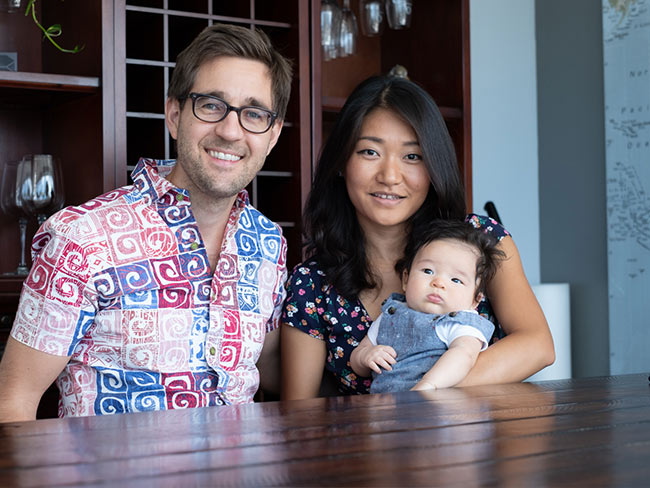
June 25, 2024
Prompt postpartum care saves a baby’s life
When a newborn was diagnosed with meningitis, a life-threatening infection …
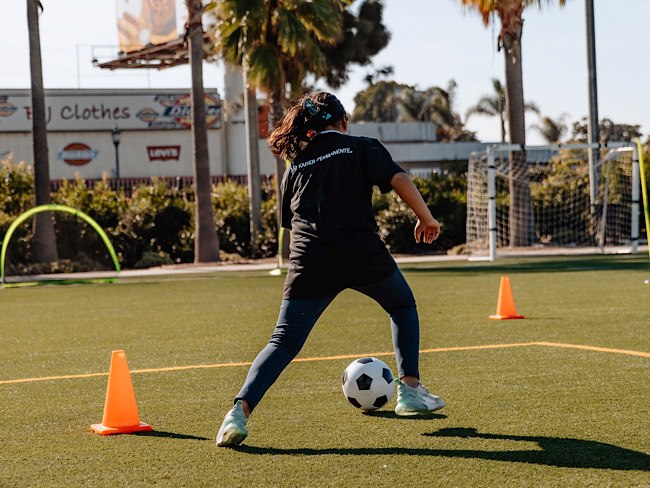
May 31, 2024
Inspiring students to take charge of their health
Kaiser Permanente and the Los Angeles Football Club will launch the second …

March 14, 2024
Midwife offers personal care for mom facing complications
For Sam Beeson, having a midwife at her side during her pregnancy helped …

February 21, 2024
From planning his funeral to celebrating his wedding
Gabriel Abarca had no hope for his future. Then the team at Kaiser Permanente …
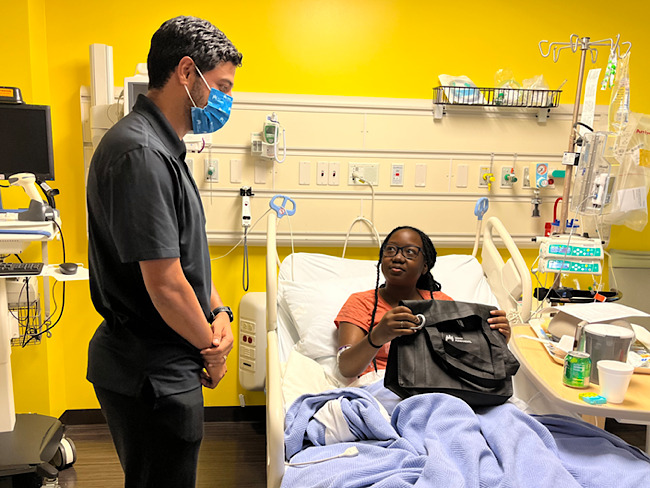
January 12, 2024
Cheering up hospitalized children
Los Angeles Football Club player Carlos Vela brings joy to Kaiser Permanente …

December 19, 2023
Determined to drop the weight and stop the cycle of diabetes
Following a COVID-19-related hospital stay, Robert DeLeon took charge of …

December 15, 2023
Family-centered care, through pregnancy and beyond
Members experiencing a low risk pregnancy have the option of having their …

December 15, 2023
Building healthy communities through play
Kaiser Permanente teams up with Los Angeles Football Club to build 5 futsal …
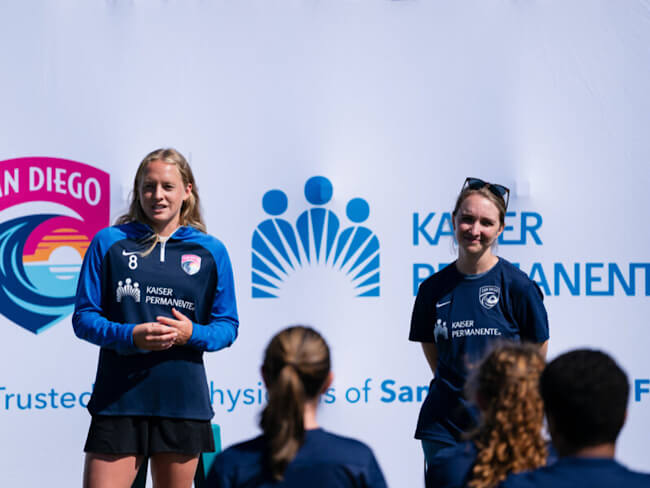
December 8, 2023
Inspiring a Wave of Wellness with youth
Kaiser Permanente and San Diego Wave Fútbol Club educated San Diego youth …

November 15, 2023
Spreading the truth about flavored tobacco and youth vaping
A youth vaping curriculum is making a difference.

October 27, 2023
Nearsightedness in kids: Taking a closer look
Nearsightedness, also known as myopia, is on the rise. To reverse that …
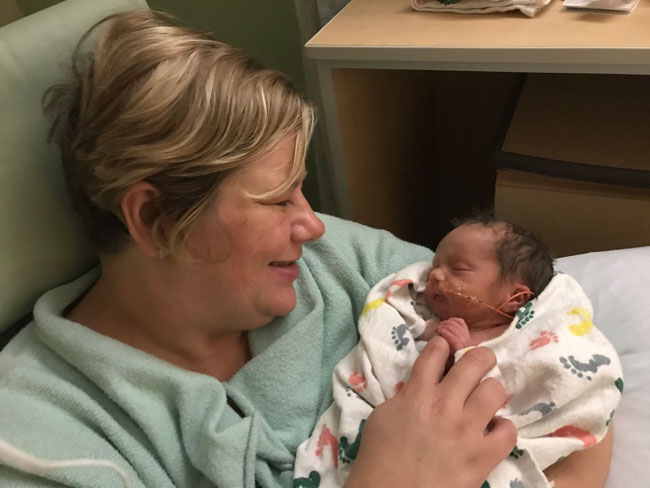
October 25, 2023
Critical care and support for our youngest patients
In Oregon, specialists and parents come together to design a specialized …

October 24, 2023
Childhood anxiety: What parents need to know
A child and adolescent psychiatrist shares tips on supporting your child …

October 10, 2023
What to know about COVID-19 vaccines
The updated vaccine is recommended for everyone 6 months and older.

August 17, 2023
Beyond clinic walls: Research supporting healthy communities
Stories in the Department of Research & Evaluation 2022 Annual Report demonstrat …

August 15, 2023
'Hot-spot' strategy gets more Californians vaccinated
A new location-based vaccine strategy by Kaiser Permanente was successful …

August 14, 2023
Tips for ensuring a safe and healthy college experience
Students should study up on their care options to ace their school experience. …

August 10, 2023
Successfully navigating the school year
These tips from Don Mordecai, MD, Kaiser Permanente’s national mental health …

June 27, 2023
Comforting, personalized care for a kiddo with cancer
Carter Shaver from Portland, Oregon, shares his optimistic smile after …

June 9, 2023
Mental health, addiction, and the power of a peer
Shared experience helps young people in Oregon build confidence for their …

June 6, 2023
COVID-19 vaccine: No serious side effects in young children
Kaiser Permanente researchers led analysis of large, diverse group of young …

May 16, 2023
COVID-19 public health emergency has ended: What’s changed?
Vaccinations, testing, and treatment are still widely accessible. Member …

May 11, 2023
COVID-19 testing, testing — Get results in 1, 2, 3
Testing is the most important way you can help control the spread of COVID-19.

May 9, 2023
School shootings provoke anxiety in many children
Child psychiatrist defines anxiety, its symptoms, how to address it, and …

April 14, 2023
The importance of screening for gestational diabetes
Gestational diabetes poses a significant risk to women of color, particularly …

April 11, 2023
Collaboration is key to keeping people insured
With the COVID-19 public health emergency ending, states, community organization …

April 7, 2023
Virtual care helps ease physical pain
Kaiser Permanente offers many high-quality, convenient options to help …

March 16, 2023
Marking the COVID-19 pandemic’s third year
Learning from this historic health crisis will better prepare us for future …

March 16, 2023
Paxlovid associated with lower risk of hospital admission
A Kaiser Permanente study finds COVID-19 patients treated quickly with …

March 14, 2023
Extra pounds put kids at higher risk for hypertension
Kaiser Permanente study shows even modest elevations in BMI above the “average …

March 6, 2023
Living with long COVID
From avid snowboarder to chronically ill patient. How Kaiser Permanente …

February 28, 2023
What you need to know about COPD
Almost 16 million people in the United States have chronic obstructive …
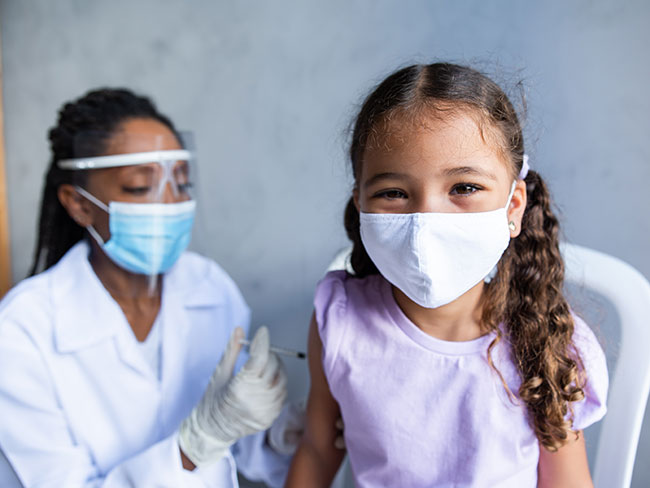
February 27, 2023
Teaching flu a lesson
School-based flu vaccination clinics made it safe and convenient for students …

February 23, 2023
Eating disorders on the rise among teens
Expert shares 5 valuable tips for parents and guardians to help children …

December 15, 2022
Helping provide teens a brighter future
Kaiser Permanente grants $150,000 to three community nonprofits.
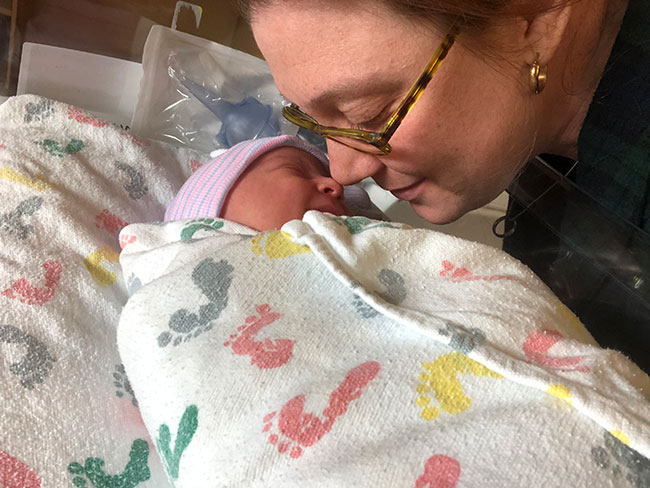
September 27, 2022
Maternity appointments from the comfort of home
New care option offers pregnant patients a mix of in-person and video visits.

September 13, 2022
Creating tobacco-free communities
Kaiser Permanente backs national efforts to ban flavored tobacco.

June 27, 2022
Kids 6 months to 17 years can receive COVID-19 vaccination
Providing safe and effective vaccinations to children is an important step …

June 24, 2022
New South Lynnwood Park creates healthy play space
Kaiser Permanente provided funds for renovated public park, with new features …

May 25, 2022
Be a source of comfort and calm
Trusted conversations help youth feel safe when community violence occurs.
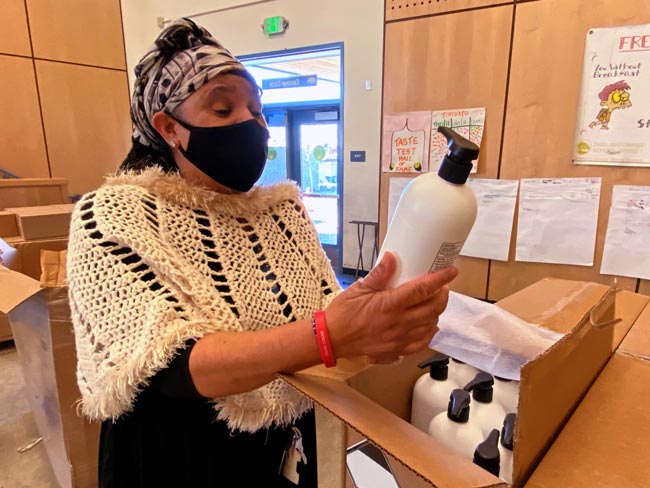
May 4, 2022
Donated supplies keep community organizations pandemic-ready
We donated over $28 million worth of face masks, hand sanitizer, and other …

May 3, 2022
One pill can kill: Understanding the risks of fentanyl
As overdose deaths skyrocket, an addiction medicine specialist explains …

March 4, 2022
Online quiz helps predict likelihood of teen substance use
Assessment helps parents and caregivers intervene early when kids are at …

January 25, 2022
Helping small businesses thrive during the COVID-19 pandemic
Kaiser Permanente grants are supporting businesses such as the Carefree …
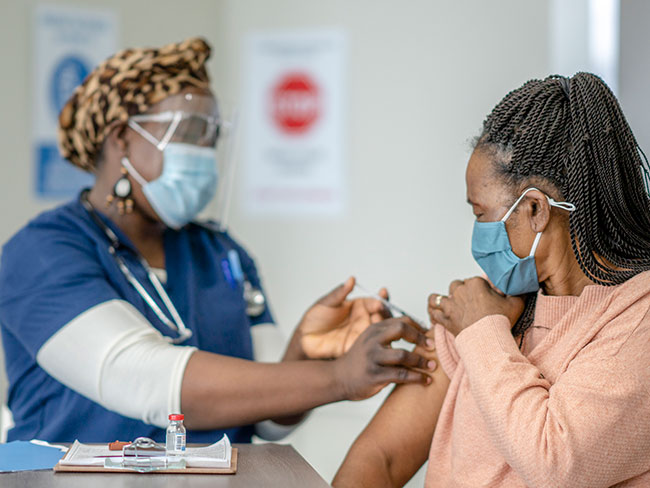
December 6, 2021
Faith leaders use trusted voices to encourage vaccination
Grants expand support for faith-based organizations working to protect …
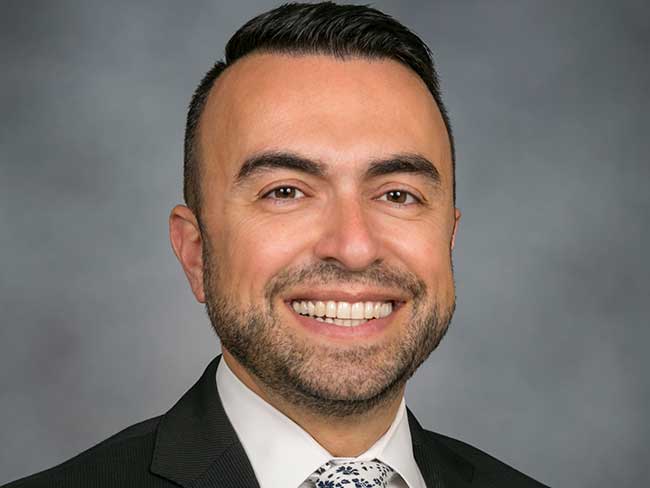
November 30, 2021
Bechara Choucair, MD, returns as chief health officer
After serving on the White House COVID-19 response team, Bechara Choucair, …
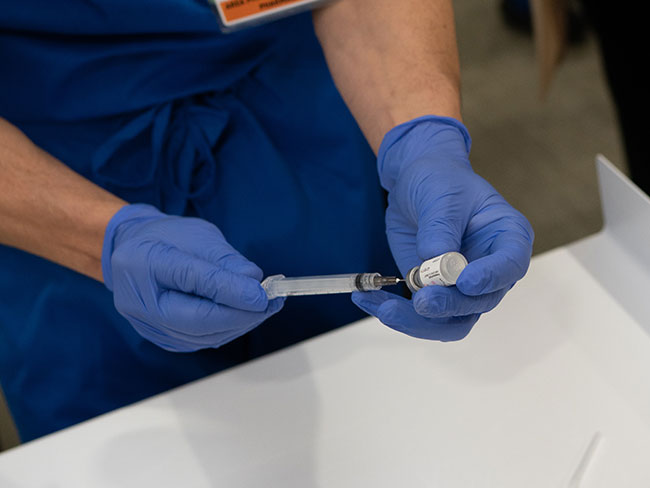
October 12, 2021
Beyond advocacy: Requiring vaccination to stop COVID-19
Kaiser Permanente and other leading companies are mandating COVID-19 shots …

October 1, 2021
Our support of California’s student vaccination requirement
A statement from Kaiser Permanente chair and chief executive officer Greg …

August 19, 2021
Supporting small businesses owned by people of color
Kaiser Permanente’s partnership with Local Initiatives Support Corporation, …

August 17, 2021
Homeless in a pandemic
For people without a safe place to call home, good health is often out …

June 8, 2021
Cancer patients and physicians embrace telehealth
Video visits and virtual collaboration speed cancer care transformation …
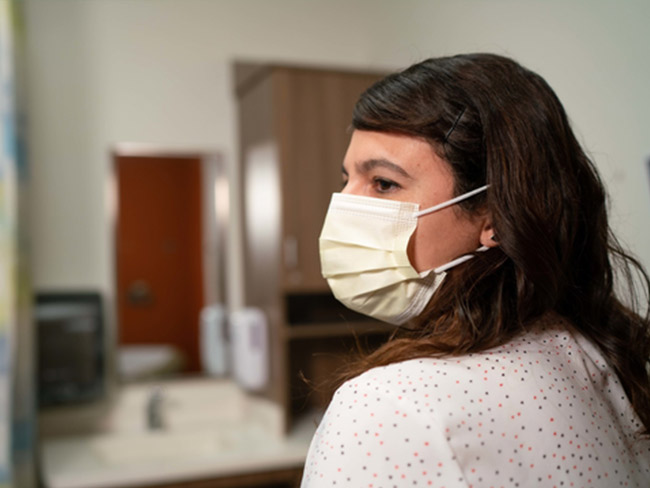
April 28, 2021
COVID-19 outcomes are more severe for people of color
Kaiser Permanente research underscores the importance of culturally appropriate …
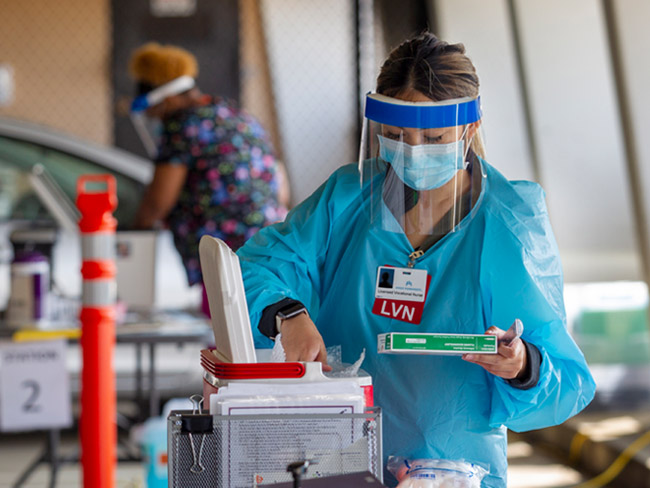
March 23, 2021
Vaccine Equity Toolkit will help address equitable access
As vaccines bring hope to end the pandemic, Kaiser Permanente’s toolkit …
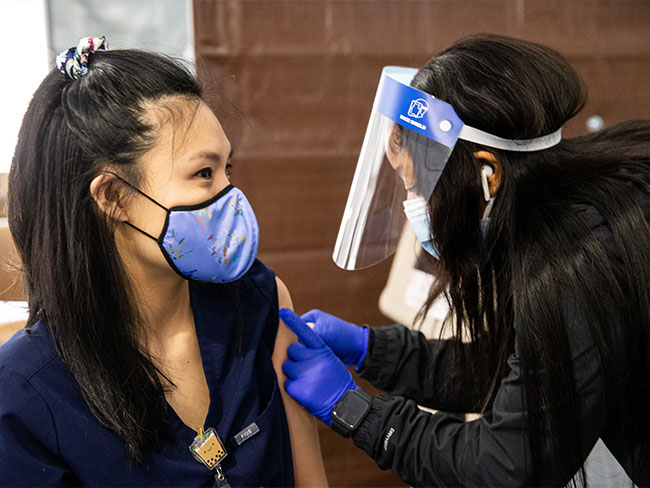
March 11, 2021
Our support of the American Rescue Plan Act
A statement from CEO Greg A. Adams about the American Rescue Plan Act.

January 15, 2021
The fastest path to care
Available 24/7 with no appointment, e-visits offer Kaiser Permanente members …

November 24, 2020
Pandemic spurs new approach to diabetes care
A diabetes specialist talks about new trends in providing care, and innovations …

October 27, 2020
Sharing an innovative approach to youth mental health
Don Mordecai, MD, Kaiser Permanente’s national leader for mental health …

October 2, 2020
Making (virtual) house calls
With expanded telehealth options, Kaiser Permanente members get convenient …

September 30, 2020
Cardiac care in the time of COVID-19
Skilled care and thorough infection-prevention protocols kept Eleanor Gorman …

August 12, 2020
Grants support community health in midst of COVID-19
Kaiser Permanente pledges more than $28 million in grants, many to address …

July 17, 2020
Maternity care ranks among the best in the nation
Newsweek’s Best Maternity Care Hospitals 2020 report recognizes Kaiser …

July 1, 2020
A breakout moment for virtual care
Kaiser Permanente’s fully integrated telehealth capabilities place quality …

May 19, 2020
Large decrease in hospitalized heart attack patients
New Kaiser Permanente research backs anecdotal reports that people are …

May 18, 2020
Nurses step up in crises
Kaiser Permanente nurses have been saving lives on the front lines since …

March 8, 2018
Slacks, not slackers — women’s role in winning World War II
Women who worked in the Kaiser shipyards helped lay the groundwork for …

Mexican chile-orange spiced pepitas
This tasty snack can help with weight loss, blood sugar, and blood pressure …
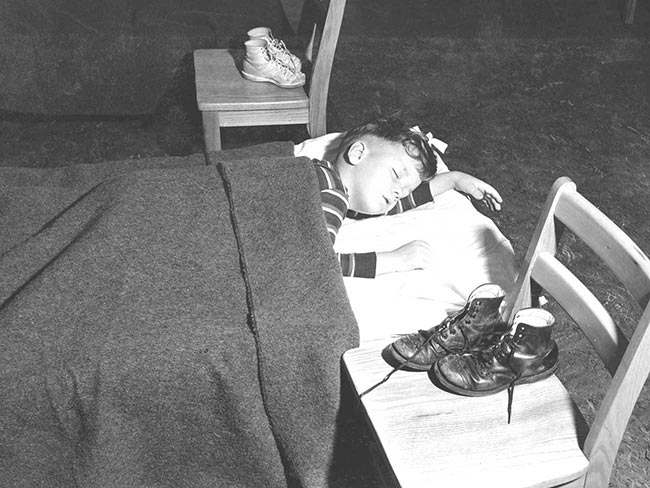
September 29, 2010
Wartime shipyard child care centers set standards for future
In 1943, Henry J. Kaiser invited key figures in child development studies …

Caesar salad
Try this classic salad recipe to get your kids to eat more fresh produce.